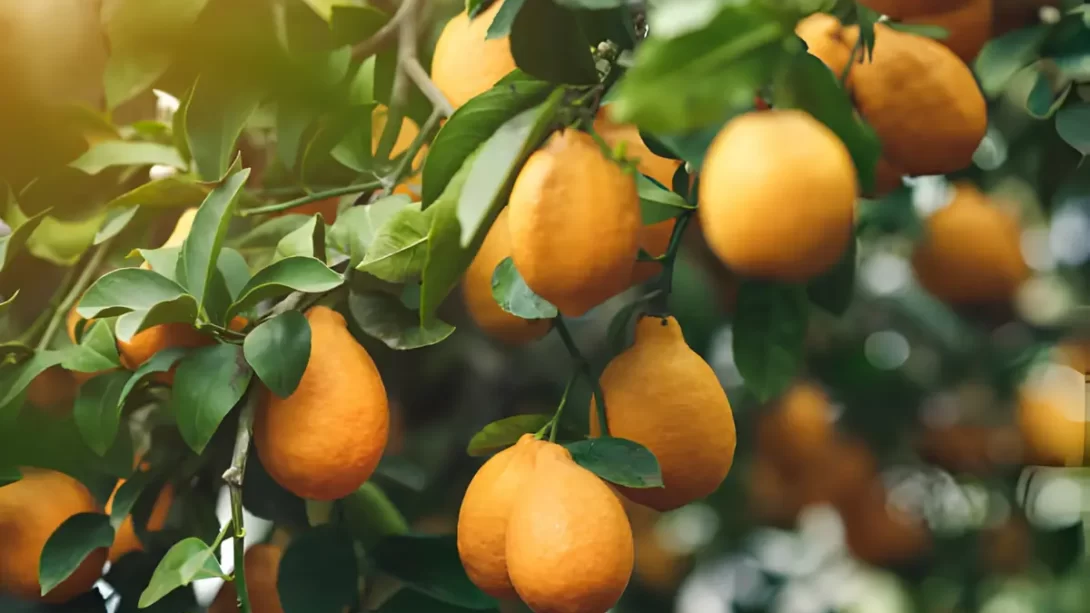The Meyer lemon tree, a popular citrus plant known for its aromatic, sweetly flavored lemons, is a favorite among both home gardeners and commercial growers. Originating from China, this hybrid variety has gained widespread admiration for its versatility and ornamental value. A common question among enthusiasts and potential growers is whether Meyer lemon trees have thorns, a characteristic often associated with citrus trees.
Overview of Meyer Lemon Trees
Meyer lemon trees are a cross between a lemon tree and either a mandarin or an orange tree, resulting in unique characteristics. They are smaller and more compact than traditional lemon trees, making them suitable for container gardening and smaller spaces. The leaves are dark green, glossy, and ovate, while the fragrant flowers and fruit are slightly smaller than those of regular lemons. Meyer lemons are prized for their less acidic, sweeter taste compared to their traditional counterparts.
Thorns on Meyer Lemon Trees
Unlike some citrus trees known for their prominent thorns, Meyer lemon trees typically have fewer and less pronounced thorns. However, it’s important to note that thorn presence can vary. Some Meyer lemon trees may have small thorns or none at all, while others might possess more noticeable thorns. The thorns, when present, are usually found along the branches and are sharp, although they are not as large or as dangerous as those on some other citrus varieties.
Variability in Thorn Presence
The presence of thorns on Meyer lemon trees can vary significantly from one tree to another. This variability can be attributed to several factors, including genetics and the tree’s growing environment. Some Meyer lemon trees, especially those grown from seed, may develop more thorns, while grafted trees tend to have fewer. Environmental stressors, such as water scarcity or nutrient deficiencies, can also influence thorn development, with stressed trees sometimes producing more thorns as a defense mechanism.
Comparison with Other Citrus Trees
When compared to other citrus varieties, Meyer lemon trees generally have fewer and less aggressive thorns. Traditional lemon trees, for instance, often have longer and sharper thorns, which can be more problematic for gardeners. Other citrus trees, like certain orange and grapefruit varieties, can also exhibit more pronounced thorniness. This makes Meyer lemon trees a more manageable and appealing option for home gardening, especially in settings where safety around children and pets is a concern.
Pruning and Managing Thorns
For Meyer lemon trees with thorns, proper pruning and management are important for both the health of the tree and the safety of the gardener. When pruning, it’s advisable to wear protective gloves and be cautious of the thorns to avoid injury. Removing thorns is generally not recommended, as it can cause harm to the tree. Instead, strategic pruning of branches can help manage thorn-related issues while maintaining the tree’s health and productivity.
Implications of Thorns for Gardeners
For gardeners cultivating Meyer lemon trees, understanding the implications of thorns is essential. While thorns can pose a minor hazard during pruning and care, their typically sparse and small nature on Meyer lemon trees reduces the risk of injury. Gardeners should exercise caution when handling these trees, especially if the tree has a higher than average number of thorns. The presence of thorns can also be a consideration in the tree’s placement, particularly in gardens frequented by children and pets.
Considerations for Thorn Management
When managing a Meyer lemon tree with thorns, gardeners should focus on overall tree health and proper cultivation practices. Healthy, well-maintained trees are less likely to produce excessive thorns. Regular watering, adequate sunlight, and proper fertilization can help minimize stress on the tree, potentially reducing thorn growth. It’s also beneficial to conduct regular inspections and pruning to maintain the desired tree shape and remove any hazardous or overly thorny branches.
Conclusion
In conclusion, while Meyer lemon trees can have thorns, they are generally less thorny compared to other citrus varieties. The presence and prominence of thorns on these trees can vary, influenced by genetic and environmental factors. For gardeners, understanding and managing thorns is a small but important aspect of caring for Meyer lemon trees. With appropriate precautions and cultivation practices, the presence of thorns should not deter enthusiasts from enjoying the beauty and fruit of Meyer lemon trees in their gardens. These trees remain a delightful choice for both experienced and novice gardeners, adding both aesthetic and culinary value to home gardens.



